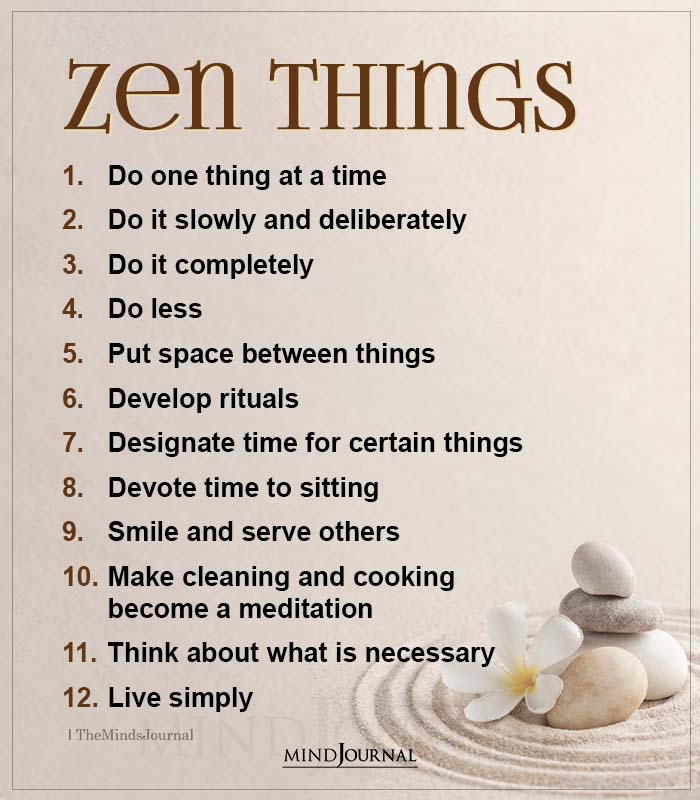Are you seeking a practice that can help you find inner peace, reduce stress, and cultivate mindfulness? Look no further than zazen meditation – a Japanese meditative discipline. Let’s learn more about zazen meditation technique and zazen meditation benefits.
What is Zazen Meditation?
Zazen meditation, rooted in the Zen Buddhist tradition, is a form of seated meditation that focuses on quieting the mind and cultivating awareness.
The term “zazen” translates to “sitting meditation” in Japanese, emphasizing the central aspect of the practice: sitting with an upright posture, typically on a cushion or bench, in a quiet and distraction-free environment.
In our fast-paced and often chaotic world, this Japanese meditation offers a sanctuary of calmness and clarity as there are numerous zazen meditation benefits. Whether you’re a seasoned meditator or new to the practice, zazen meditation has the power to transform your life.
Related: Zen Koans: 5 Profound Paradoxical Riddles To Expand Your Mind

Exploring Zazen Meditation Technique
To begin your zazen meditation practice, find a comfortable and quiet space where you can sit undisturbed.
Here’s a step-by-step guide to practicing this japanese meditation:
1. Posture
Sit cross-legged on a cushion or bench, with your spine naturally aligned and your head slightly tilted downward. Maintain a relaxed yet alert posture, allowing your body to settle into a stable and balanced position.
2. Hand Mudras
Place your hands in a specific mudra (hand gesture) known as the cosmic mudra. Rest your dominant hand on the open palm of your other hand, with your thumbs lightly touching, forming an oval shape. This gesture symbolizes unity and tranquility.
3. Focus on Breath
Direct your attention to your breath. Breathe naturally and observe each inhalation and exhalation without attempting to manipulate or control your breath. Allow your breath to become an anchor, bringing you back to the present moment whenever your mind wanders.
4. Cultivate Awareness
As thoughts, emotions, or sensations arise, simply acknowledge them without judgment and gently return your attention to your breath. Embrace a state of non-attachment, letting go of any distractions or expectations.
Zazen Meditation Benefits
Here are some of the most common zazen meditation benefits that will help you realize why should practice zazen meditation technique –
1. Reduces Stress and Anxiety
Regular practice of zazen meditation has been shown to significantly reduce stress levels by activating the relaxation response in the body. By quieting the mind and releasing tension, zazen meditation promotes a deep sense of calmness and tranquility.
2. Enhances Mental Clarity
Zazen meditation cultivates a focused and clear mind. As you practice regularly, you’ll notice an increased ability to observe your thoughts without getting entangled in them.
This heightened mental clarity can lead to better decision-making, problem-solving, and overall cognitive function.
3. Promotes Emotional Well-being
By developing a non-reactive and non-judgmental attitude towards your thoughts and emotions, zazen meditation helps you develop emotional resilience.
It allows you to approach challenging emotions with compassion and acceptance, leading to greater emotional well-being and stability. This is one of the most prominent zazen meditation benefits.
Related: 11 Daily Zen Habits That Will Transform Your Life
4. Heightens Mindfulness
Zazen meditation is a powerful tool for cultivating mindfulness, which involves non-judgmental awareness of the present moment.
Through sustained practice, you’ll learn to bring this heightened awareness into your daily life, fostering a deeper connection with yourself and the world around you.
5. Improves Concentration and Focus
The focused attention required in zazen meditation strengthens your ability to concentrate and sustain focus.
With regular practice, you’ll notice an improvement in your ability to stay present and fully engage in tasks, leading to increased productivity and efficiency.
6. Enhances Self-Awareness
Zazen meditation provides an opportunity for deep self-reflection and introspection.
By observing your thoughts, emotions, and sensations without attachment or judgment, you develop a greater understanding of your inner landscape, leading to enhanced self-awareness and personal growth.
7. Promotes Physical Well-being
Zazen meditation has been associated with various physical health benefits. It can lower blood pressure, improve sleep quality, boost the immune system, and reduce symptoms of chronic pain.
By calming the mind, zazen meditation supports the body’s natural healing processes. This is among the most vital zazen meditation benefits.
8. Cultivates Compassion
Zazen meditation technique encourages a compassionate mindset towards both oneself and others.
As you develop greater self-acceptance and empathy through the practice, you’ll find it easier to extend compassion and kindness to those around you, fostering harmonious relationships and a greater sense of connectedness.
9. Deepens Spiritual Connection
Rooted in the Zen Buddhist tradition, zazen meditation offers a spiritual dimension to your practice. It provides an opportunity to connect with your inner self, explore the nature of existence, and deepen your spiritual journey.
Apart from these, there are many other zazen meditation benefits that an individual can experience once they start practicing on a daily basis and become an advanced practitioner eventually.

Takeaway
Zazen meditation is a transformative practice that offers numerous benefits for your mind, body, and spirit. Through its gentle yet profound technique, it allows you to cultivate inner peace, mindfulness, and emotional well-being.
By incorporating the practice of zazen into your daily routine, you can experience reduced stress, enhanced mental clarity, improved concentration, and a deeper connection with yourself and the world around you.
Remember, the true essence of zazen meditation lies not in achieving a specific outcome but in embracing the present moment with openness and acceptance. As you embark on your zazen meditation journey, be patient with yourself and allow the practice to unfold naturally.
With regular commitment and a willingness to explore the depths of your own being, you’ll discover the profound benefits that zazen meditation can bring to your life.
So, why not carve out a few moments each day to sit in stillness and embrace the transformative power of zazen meditation benefits? Your journey towards inner peace and mindfulness awaits.
Related: 7 Zen Stories That Will Make You Feel Enlightened
How is zazen different from meditation?
Zazen is a form of seated meditation in Zen Buddhism, emphasizing posture and breath, while meditation encompasses various techniques and practices.
What to do during zazen?
During zazen (Zen meditation), sit upright, focus on your breath or a koan, and observe thoughts without attachment, fostering mindfulness and presence.
Is zazen meditation good?
Yes, zazen meditation is considered beneficial for cultivating mindfulness, inner peace, and self-awareness, promoting mental and emotional well-being.










Leave a Reply